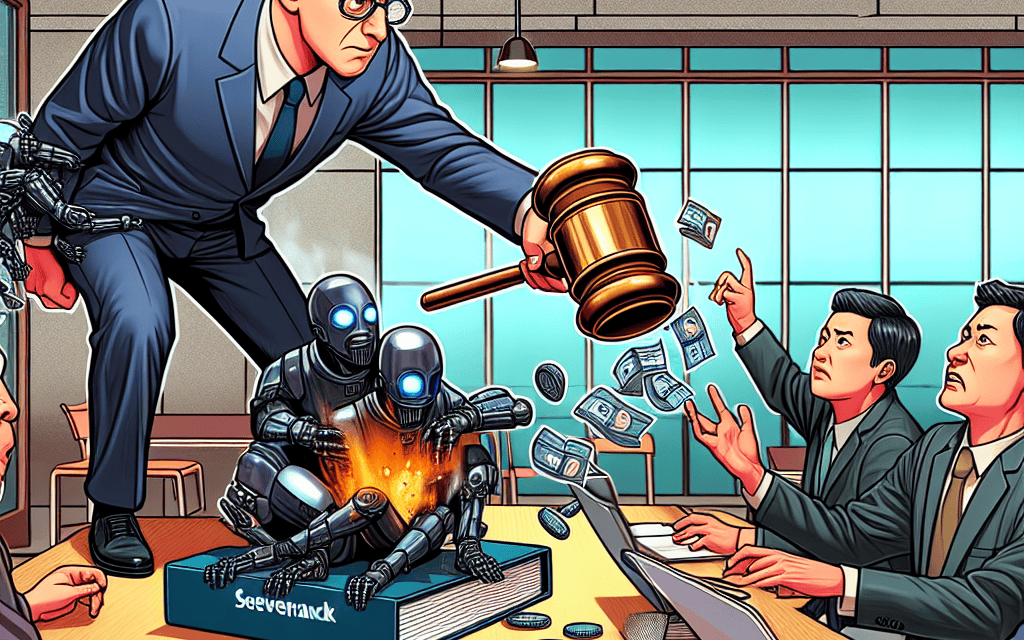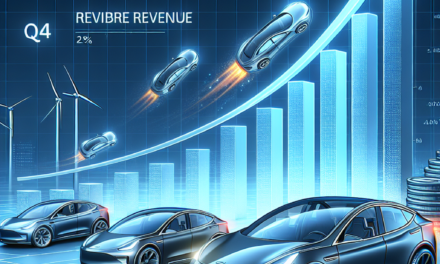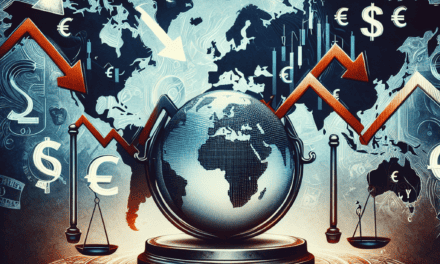“Severance Standoff: Musk’s Bid to Block Ex-Twitter CEO’s Claim Falls Short”
Introduction
In a recent legal development, Elon Musk’s attempt to dismiss the severance claim of former Twitter CEO Parag Agrawal has been unsuccessful. The case revolves around Agrawal’s entitlement to a severance package following his departure from the company, which Musk, who acquired Twitter in 2022, sought to invalidate. The court’s decision to reject Musk’s motion marks a significant moment in the ongoing legal battle, underscoring the complexities of executive compensation and contractual obligations in high-profile corporate transitions. This outcome not only highlights the challenges faced by Musk in his management of the social media giant but also sets a precedent for similar disputes in the corporate world.
Legal Battle: Musk’s Failed Attempt to Dismiss Ex-Twitter CEO’s Severance Claim
In a recent development in the ongoing legal battle between Elon Musk and former Twitter CEO Parag Agrawal, a judge has denied Musk’s attempt to dismiss Agrawal’s severance claim. This decision marks a significant moment in the dispute, which has captured the attention of both the business world and the public. The case revolves around Agrawal’s claim for severance pay following his departure from Twitter, now rebranded as X, after Musk’s acquisition of the social media giant.
The origins of this legal confrontation can be traced back to Musk’s high-profile acquisition of Twitter in 2022. Following the acquisition, Musk implemented sweeping changes within the company, including the termination of several top executives, among them Agrawal. Agrawal, who had been at the helm of Twitter for a relatively short period, subsequently filed a claim for severance pay, arguing that his termination was unjust and that he was entitled to compensation as per his employment contract.
Musk, known for his unconventional approach to business and management, contested Agrawal’s claim, asserting that the former CEO was not entitled to the severance package. Musk’s legal team argued that Agrawal’s performance did not meet the standards required for such compensation and that his termination was justified. This stance, however, was met with skepticism by many legal experts, who pointed out that employment contracts typically include specific provisions for severance pay, especially for high-ranking executives.
The judge’s recent decision to deny Musk’s motion to dismiss the claim underscores the complexity of employment contracts and the legal protections afforded to executives. In rejecting Musk’s attempt, the judge highlighted the importance of adhering to contractual obligations and ensuring that employees, regardless of their position, are treated fairly and in accordance with the terms agreed upon at the outset of their employment. This ruling serves as a reminder of the legal responsibilities that come with corporate leadership and the potential consequences of failing to honor contractual commitments.
As the case proceeds, it is likely to draw further attention to the broader implications of executive severance packages and the legal frameworks that govern them. The outcome of this legal battle could set a precedent for similar disputes in the future, influencing how companies negotiate and enforce employment contracts with their top executives. Moreover, it raises questions about the balance of power between employers and employees, particularly in high-stakes corporate environments where leadership changes can have far-reaching consequences.
In the meantime, both parties are expected to continue their legal maneuvers, with Agrawal seeking to secure the severance pay he believes he is owed and Musk aiming to defend his decision to terminate the former CEO without compensation. The case not only highlights the personal stakes involved for Agrawal and Musk but also serves as a microcosm of the broader challenges faced by companies navigating leadership transitions in an increasingly complex business landscape.
Ultimately, the resolution of this legal battle will hinge on the interpretation of the employment contract and the specific circumstances surrounding Agrawal’s termination. As the proceedings unfold, they will undoubtedly provide valuable insights into the intricacies of executive employment agreements and the legal principles that underpin them. For now, the denial of Musk’s attempt to dismiss the severance claim marks a pivotal moment in this ongoing saga, setting the stage for what promises to be a closely watched legal showdown.
Severance Dispute: The Implications of Musk’s Legal Setback
In a recent legal development, Elon Musk’s attempt to dismiss the severance claim of former Twitter CEO Parag Agrawal has been unsuccessful, marking a significant moment in the ongoing dispute between the tech mogul and the social media platform’s former leadership. This legal setback not only highlights the complexities involved in executive severance agreements but also underscores the broader implications for corporate governance and leadership transitions in the tech industry.
The dispute began when Agrawal, along with other top executives, was ousted following Musk’s acquisition of Twitter. Agrawal subsequently filed a claim for severance compensation, which he argued was contractually owed to him under the terms of his employment agreement. Musk, however, contested this claim, seeking to have it dismissed on various grounds. The court’s decision to reject Musk’s motion to dismiss the claim suggests that Agrawal’s case has sufficient merit to proceed, thereby setting the stage for a potentially protracted legal battle.
This development is significant for several reasons. Firstly, it brings to the forefront the importance of clearly defined severance agreements in executive contracts. Such agreements are designed to provide financial security to executives in the event of abrupt leadership changes, ensuring that they are compensated for their contributions and the potential disruption to their careers. The court’s decision reinforces the notion that these agreements must be honored, even amidst high-profile corporate takeovers.
Moreover, the case highlights the challenges that can arise during leadership transitions, particularly in the fast-paced tech industry. As companies like Twitter undergo significant changes in ownership and strategic direction, the treatment of outgoing executives can set important precedents for future transitions. The outcome of this legal dispute could influence how severance agreements are structured and enforced, potentially impacting the negotiation dynamics between executives and companies across the industry.
In addition to its implications for corporate governance, the case also sheds light on the broader relationship between Musk and the former Twitter leadership. The contentious nature of the severance dispute reflects the tensions that have characterized Musk’s takeover of the platform. This legal battle is emblematic of the broader challenges Musk has faced in integrating his vision for Twitter with the existing corporate culture and leadership.
Furthermore, the court’s decision may have reputational implications for Musk, who is known for his unconventional approach to business and leadership. While his bold strategies have often yielded success, this legal setback serves as a reminder of the importance of adhering to established legal and contractual norms. It underscores the need for even the most innovative leaders to navigate the complexities of corporate law with diligence and respect for existing agreements.
As the case progresses, it will be closely watched by industry observers, legal experts, and corporate leaders alike. The outcome could have far-reaching consequences for how executive severance disputes are resolved in the future, potentially shaping the landscape of corporate governance in the tech sector. Ultimately, this legal setback for Musk serves as a pivotal moment in the ongoing narrative of his leadership at Twitter, offering valuable lessons on the intersection of innovation, leadership, and the rule of law.
Corporate Governance: Lessons from Musk’s Severance Claim Challenge
In the realm of corporate governance, the recent legal battle involving Elon Musk and the severance claim of former Twitter CEO Parag Agrawal offers a compelling case study. This dispute, which has captured the attention of both legal experts and corporate leaders, underscores the complexities and challenges inherent in executive compensation agreements. As Musk’s attempt to dismiss Agrawal’s severance claim has failed, it provides an opportunity to explore the broader implications for corporate governance practices.
The case began when Agrawal, who was ousted from his position following Musk’s acquisition of Twitter, sought to claim his severance package as stipulated in his employment contract. Musk, known for his unconventional approach to business and management, challenged the validity of this claim, arguing that Agrawal’s termination was justified and thus negated the severance agreement. However, the court’s decision to uphold Agrawal’s claim highlights the importance of adhering to contractual obligations and the potential legal ramifications of failing to do so.
This legal outcome serves as a reminder to corporate boards and executives about the critical role of clear and enforceable contracts in governance. Employment agreements, particularly those involving high-level executives, must be meticulously crafted to ensure that all parties understand their rights and obligations. This case illustrates that even the most influential business leaders are not immune to the binding nature of contractual commitments. Consequently, companies must prioritize transparency and precision in drafting these agreements to avoid costly legal disputes.
Moreover, the failed attempt to dismiss the severance claim sheds light on the broader issue of executive accountability. In recent years, there has been a growing demand for corporate leaders to be held accountable for their actions, both in terms of performance and ethical conduct. The court’s decision reinforces the notion that executives cannot unilaterally alter or disregard contractual terms without facing potential consequences. This serves as a cautionary tale for other corporate leaders who might consider similar actions.
In addition to contractual clarity and accountability, this case also emphasizes the importance of maintaining a balance between executive authority and oversight. While visionary leaders like Musk often drive innovation and growth, their decisions must be tempered by sound governance practices. This includes ensuring that there are adequate checks and balances in place to prevent potential abuses of power. By fostering a culture of accountability and transparency, companies can mitigate the risks associated with executive decision-making.
Furthermore, the outcome of this legal battle may influence future negotiations of executive compensation packages. As companies strive to attract and retain top talent, they must carefully consider the terms of severance agreements and other compensation-related clauses. This case serves as a precedent, highlighting the need for companies to be diligent in their contractual negotiations and to anticipate potential challenges that may arise.
In conclusion, the failed attempt by Elon Musk to dismiss Parag Agrawal’s severance claim offers valuable lessons in corporate governance. It underscores the necessity of clear contractual agreements, the importance of executive accountability, and the need for balanced oversight. As companies navigate the complexities of executive compensation, they must remain vigilant in upholding governance standards to ensure long-term success and stability. This case serves as a poignant reminder that even the most dynamic leaders must operate within the framework of established legal and ethical norms.
Executive Compensation: Analyzing the Musk vs. Ex-Twitter CEO Case
In the realm of executive compensation, the recent legal battle between Elon Musk and the former CEO of Twitter has captured significant attention. This case, which centers around a severance claim, highlights the complexities and challenges inherent in high-stakes corporate negotiations. Elon Musk, known for his leadership roles at Tesla and SpaceX, has been embroiled in a legal dispute with the ex-CEO of Twitter, who claims that he is owed a substantial severance package following his departure from the company. Despite Musk’s attempts to dismiss the claim, the court has ruled in favor of the former executive, allowing the case to proceed.
The dispute began when the ex-CEO, who had been at the helm of Twitter during a tumultuous period, was ousted from his position. Following his departure, he filed a claim for severance, arguing that he was contractually entitled to a significant payout. Musk, who had taken a keen interest in Twitter’s operations, contested this claim, asserting that the former CEO’s performance did not warrant such compensation. However, the court’s decision to allow the case to move forward suggests that there may be more to the story than initially meets the eye.
One of the key issues at play in this case is the interpretation of the severance agreement. Severance packages for executives are often complex, involving numerous clauses and conditions that can be subject to varying interpretations. In this instance, the former CEO’s legal team has argued that the terms of the agreement clearly entitle him to the compensation he seeks. Conversely, Musk’s team has contended that the agreement’s conditions were not met, thereby nullifying the claim. This divergence in interpretation underscores the importance of precise language and clear terms in executive contracts.
Moreover, this case sheds light on the broader issue of executive compensation and its implications for corporate governance. Severance packages are designed to provide a safety net for executives, ensuring that they are not unduly penalized for decisions made in the best interest of the company. However, they can also be a source of contention, particularly when there is a perception that they are being used to reward poor performance. The Musk vs. ex-Twitter CEO case exemplifies this tension, as it raises questions about the balance between rewarding leadership and holding executives accountable.
In addition to the legal and contractual aspects, this case also highlights the role of public perception in executive compensation disputes. High-profile cases such as this one often attract media attention, influencing public opinion and potentially impacting the reputations of the parties involved. For Musk, who is no stranger to controversy, the outcome of this case could have implications for his standing in the business community. Similarly, the former CEO’s reputation may be affected by the court’s decision, as it could either vindicate his claims or cast doubt on his leadership.
As the case progresses, it will be closely watched by those interested in corporate governance and executive compensation. The outcome could set a precedent for how similar disputes are resolved in the future, influencing the drafting and enforcement of executive contracts. Ultimately, the Musk vs. ex-Twitter CEO case serves as a reminder of the complexities and challenges inherent in executive compensation, highlighting the need for clear agreements and fair practices in the corporate world.
Legal Precedents: How Musk’s Case Could Influence Future Severance Claims
In a recent legal development, Elon Musk’s attempt to dismiss the severance claim of former Twitter CEO Parag Agrawal has been unsuccessful, setting a significant precedent that could influence future severance claims in the corporate world. This case, which has garnered considerable attention, underscores the complexities involved in executive severance agreements and the legal obligations companies must uphold when terminating high-ranking officials. As the court ruled against Musk’s motion to dismiss, it highlighted the importance of adhering to contractual agreements and the potential consequences of failing to do so.
The case began when Agrawal, who was ousted from his position following Musk’s acquisition of Twitter, filed a lawsuit seeking the severance package he claimed was contractually owed to him. Musk, in response, argued that Agrawal’s termination was justified and that the severance agreement was void due to alleged misconduct. However, the court found insufficient evidence to support Musk’s claims, thereby reinforcing the enforceability of severance agreements unless clear violations are proven. This decision not only affirms the rights of executives to receive agreed-upon compensation but also serves as a cautionary tale for companies attempting to circumvent such agreements.
Moreover, the implications of this ruling extend beyond the immediate parties involved. It sets a legal precedent that could influence how future severance claims are handled, particularly in cases involving high-profile executives. Companies may now be more cautious in drafting severance agreements, ensuring that terms are clear and that any conditions for termination are explicitly outlined. This could lead to more detailed contracts that protect both the employer and the employee, reducing the likelihood of disputes and litigation.
Furthermore, this case highlights the role of the judiciary in upholding contractual obligations and ensuring fair treatment in the corporate sector. By ruling in favor of Agrawal, the court has reinforced the principle that agreements must be honored, thereby promoting a sense of accountability and integrity within corporate governance. This decision may encourage executives to negotiate more robust severance packages, knowing that the courts are likely to uphold their rights in the event of a dispute.
In addition, the outcome of this case could influence the strategies employed by legal teams in similar disputes. Lawyers representing executives may feel emboldened to pursue claims with greater confidence, while those representing companies might advise their clients to settle disputes amicably rather than risk an unfavorable court ruling. This shift in legal strategy could lead to more negotiations and settlements outside of court, ultimately benefiting both parties by saving time and resources.
In conclusion, the failure of Musk’s attempt to dismiss Agrawal’s severance claim marks a pivotal moment in the realm of corporate law. It underscores the necessity for companies to honor their contractual commitments and serves as a reminder of the legal protections afforded to executives. As this case sets a precedent for future severance claims, it is likely to influence how companies approach executive terminations and the drafting of severance agreements. Ultimately, this ruling reinforces the importance of transparency, accountability, and fairness in corporate practices, shaping the landscape of executive compensation for years to come.
Business Ethics: The Controversy Surrounding Musk’s Severance Dispute
In a recent development that has captured the attention of both the business world and the public, Elon Musk’s attempt to dismiss the severance claim of former Twitter CEO Parag Agrawal has been unsuccessful. This unfolding saga not only highlights the complexities of executive compensation but also raises significant questions about business ethics and corporate governance. As the legal proceedings continue, the case serves as a reminder of the intricate balance between contractual obligations and ethical considerations in high-stakes corporate environments.
The dispute began when Agrawal, who was ousted from his position following Musk’s acquisition of Twitter, sought to claim his severance package as stipulated in his employment contract. Musk, known for his unconventional approach to business and management, challenged the claim, arguing that Agrawal’s termination was justified and that the severance package was therefore unwarranted. However, the court’s decision to allow the claim to proceed underscores the importance of honoring contractual agreements, regardless of the circumstances surrounding an executive’s departure.
This case brings to light the broader issue of how companies handle executive departures, particularly in situations involving high-profile figures and significant financial stakes. Severance packages are often designed to provide a safety net for executives, ensuring that they are compensated for their service and any potential reputational damage resulting from their departure. However, these agreements can become contentious when the terms of the departure are disputed, as seen in the current case between Musk and Agrawal.
Moreover, the ethical implications of this dispute cannot be overlooked. Musk’s attempt to dismiss the severance claim raises questions about the responsibilities of corporate leaders to uphold ethical standards and honor their commitments. In an era where corporate accountability is increasingly scrutinized, the actions of high-profile executives like Musk are often viewed as indicative of broader industry practices. Consequently, this case may influence how other companies approach similar disputes in the future, potentially prompting a reevaluation of how severance agreements are structured and enforced.
Furthermore, the public nature of this dispute has amplified its impact, drawing attention to the often opaque world of executive compensation. As stakeholders, including employees, investors, and the general public, become more aware of these issues, there is a growing demand for transparency and fairness in how companies manage executive departures. This case serves as a catalyst for discussions about the need for clearer guidelines and more equitable practices in executive compensation, which could lead to meaningful changes in corporate governance.
In conclusion, the failed attempt by Elon Musk to dismiss Parag Agrawal’s severance claim is more than just a legal battle; it is a reflection of the complex interplay between business ethics, contractual obligations, and corporate governance. As the case progresses, it will undoubtedly continue to spark debate and potentially drive changes in how companies handle executive departures. Ultimately, this dispute serves as a reminder of the importance of maintaining ethical standards and honoring commitments in the business world, even amidst the challenges and uncertainties that often accompany high-profile corporate transactions.
Leadership and Accountability: Insights from Musk’s Legal Struggles
In the ever-evolving landscape of corporate leadership, the recent legal struggles of Elon Musk, particularly concerning the severance claim of former Twitter CEO Parag Agrawal, offer a compelling case study in leadership and accountability. Musk, known for his audacious ventures and transformative impact on industries ranging from electric vehicles to space exploration, has often been a polarizing figure. His leadership style, characterized by bold decision-making and a penchant for disruption, has garnered both admiration and criticism. However, the legal challenges he faces in this instance underscore the complexities and responsibilities inherent in corporate governance.
The dispute arose following Musk’s acquisition of Twitter, a move that was as controversial as it was ambitious. Upon taking control, Musk swiftly implemented a series of sweeping changes, including the termination of several top executives, among them Agrawal. The dismissal of Agrawal, who had been at the helm of Twitter during a tumultuous period, was not entirely unexpected. However, the subsequent legal battle over his severance package has brought to light significant issues regarding contractual obligations and executive compensation.
Musk’s attempt to dismiss Agrawal’s severance claim was met with resistance in the legal arena, ultimately resulting in a ruling that favored the former CEO. This outcome serves as a reminder of the importance of honoring contractual agreements, even amidst the rapid changes that often accompany leadership transitions. The court’s decision highlights the necessity for leaders to balance their strategic objectives with a commitment to ethical and legal standards. In this context, Musk’s legal struggles illustrate the potential pitfalls of prioritizing expediency over due process.
Moreover, this case sheds light on the broader implications of leadership accountability. As leaders navigate complex organizational landscapes, they must remain cognizant of the impact their decisions have on stakeholders, including employees, shareholders, and the broader community. The legal challenges faced by Musk underscore the need for transparency and fairness in executive decision-making. By adhering to these principles, leaders can foster trust and credibility, essential components for long-term success.
In addition to the legal and ethical dimensions, Musk’s situation also prompts reflection on the role of leadership in shaping corporate culture. The manner in which leaders handle transitions, particularly those involving high-profile personnel changes, can significantly influence organizational morale and cohesion. In Musk’s case, the contentious nature of Agrawal’s dismissal and the subsequent legal battle may have implications for Twitter’s internal dynamics and public perception. Leaders must therefore be mindful of the cultural and reputational consequences of their actions, ensuring that their approach aligns with the values and mission of the organization.
Ultimately, Musk’s legal struggles serve as a poignant reminder of the multifaceted nature of leadership and accountability. While visionary leadership can drive innovation and growth, it must be tempered with a commitment to ethical standards and a respect for established protocols. As Musk continues to navigate the challenges associated with his diverse business ventures, the lessons gleaned from this legal episode may prove invaluable. By embracing a more balanced approach to leadership, one that harmonizes ambition with accountability, Musk and other leaders can better position themselves to achieve sustainable success in an increasingly complex world.
Q&A
1. **What was the legal issue?**
Elon Musk attempted to dismiss a severance claim made by former Twitter CEO Parag Agrawal.
2. **Who was involved in the case?**
The case involved Elon Musk and former Twitter CEO Parag Agrawal.
3. **What was the claim about?**
The claim was about severance pay that Agrawal argued he was entitled to after being terminated.
4. **What was the outcome of Musk’s attempt?**
Musk’s attempt to dismiss the severance claim was unsuccessful.
5. **What was the reason for the dismissal attempt?**
Musk likely argued that the severance claim was not valid or justified under the terms of Agrawal’s contract.
6. **What does this mean for Agrawal?**
Agrawal’s claim for severance will proceed, potentially leading to a settlement or court decision in his favor.
7. **What are the potential implications for Twitter?**
Twitter may be required to pay the severance if Agrawal’s claim is upheld, impacting its financial obligations.
Conclusion
Elon Musk’s attempt to dismiss the severance claim of former Twitter CEO Parag Agrawal has been unsuccessful. This outcome indicates that the legal arguments presented by Musk and his team were insufficient to convince the court to reject Agrawal’s claim. As a result, the case will likely proceed, requiring further legal proceedings to resolve the dispute over the severance package. This development underscores the complexities and challenges involved in high-profile corporate separations and the enforcement of contractual agreements.





